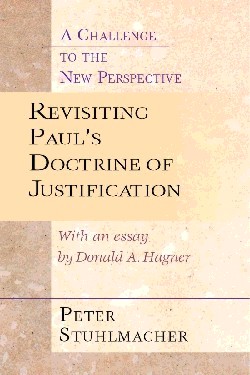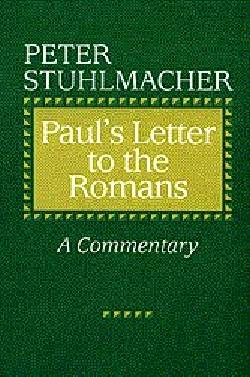Peter Stuhlmacher
Showing all 2 resultsSorted by latest
-
Revisiting Pauls Doctrine Of Justification
$26.99IVP Print On Demand Title
This book evaluates the so-called new perspective on the teaching of the apostle Paul and finds it wanting. Stuhlmacher mounts a forthright and well-supported and well-supported critique based on both established and more recent scholarship that sheds light on Paul’s emphasis on the judicial/forensic aspects of Paul’s understanding of our justification.
Add to cartin stock within 3-5 days of online purchase
-
Pauls Letter To The Romans
$52.00In this book, Peter Stuhlmacher stresses the Old Testament and postbiblical Jewish traditions as the primary backdrop to Paul’s thought, as these traditions were known by Paul himself or mediated to him through Jesus and the early church. The themes of the righteousness of God and the corresponding justification of both Jews and Gentiles are viewed as the center of Romans. Finally, Stuhlmacher seeks to place the apostle’s theology within its historical context. He overcomes the false dichotomy that has often characterized the study of Romans, mediating between the view that it is a general theological treatise that functions as Paul’s last testament to his Christian faith, on the one hand, and the view that it is one particular and occasion-bound expression of Paul’s thinking.
Add to cartin stock within 3-5 days of online purchase












